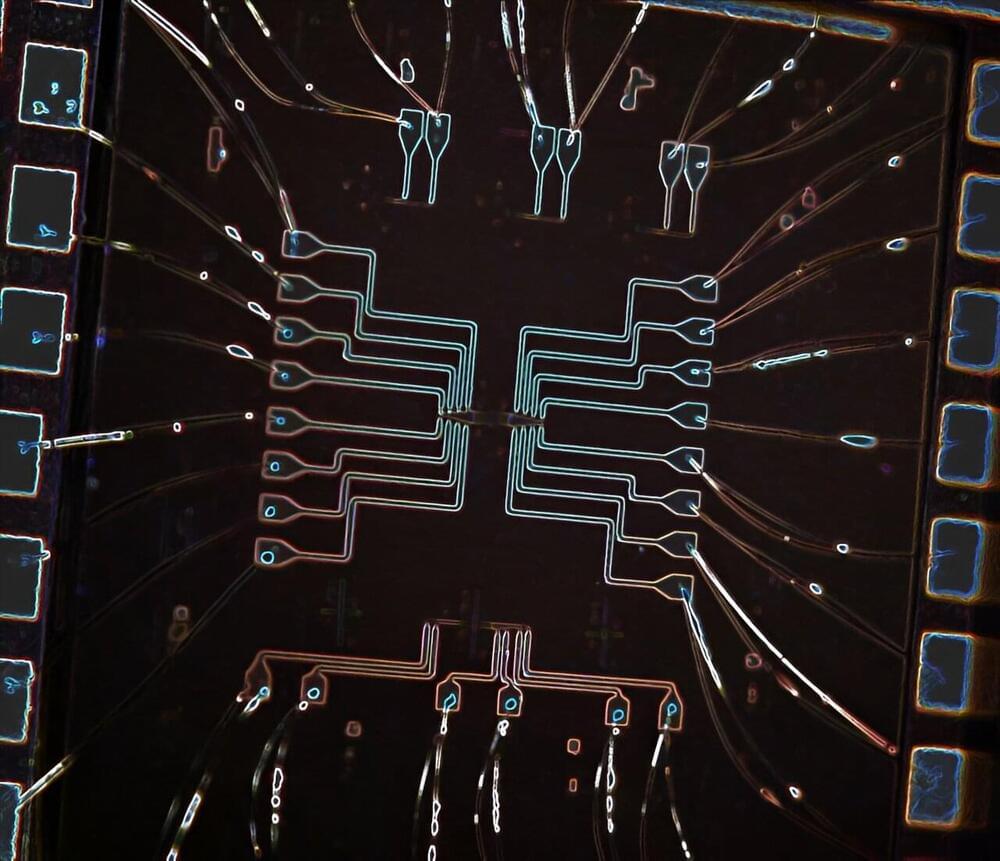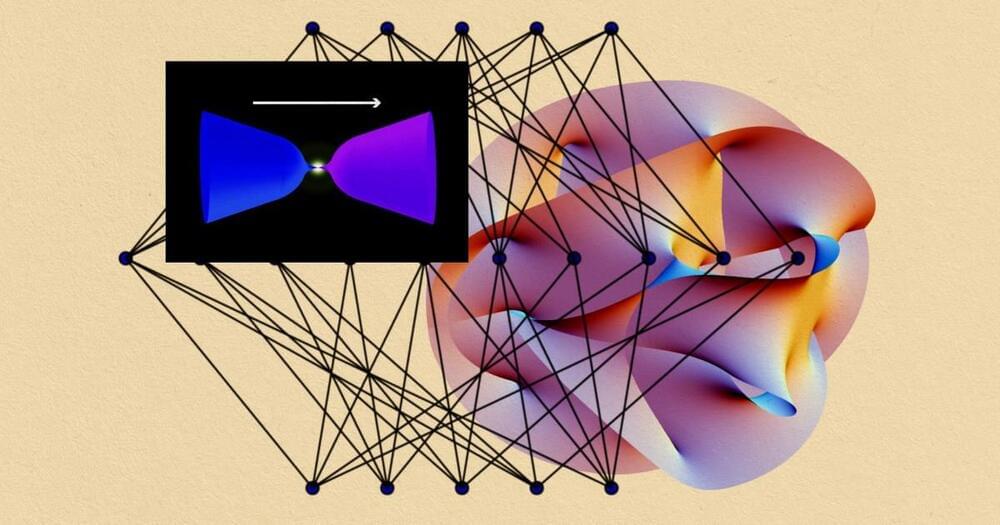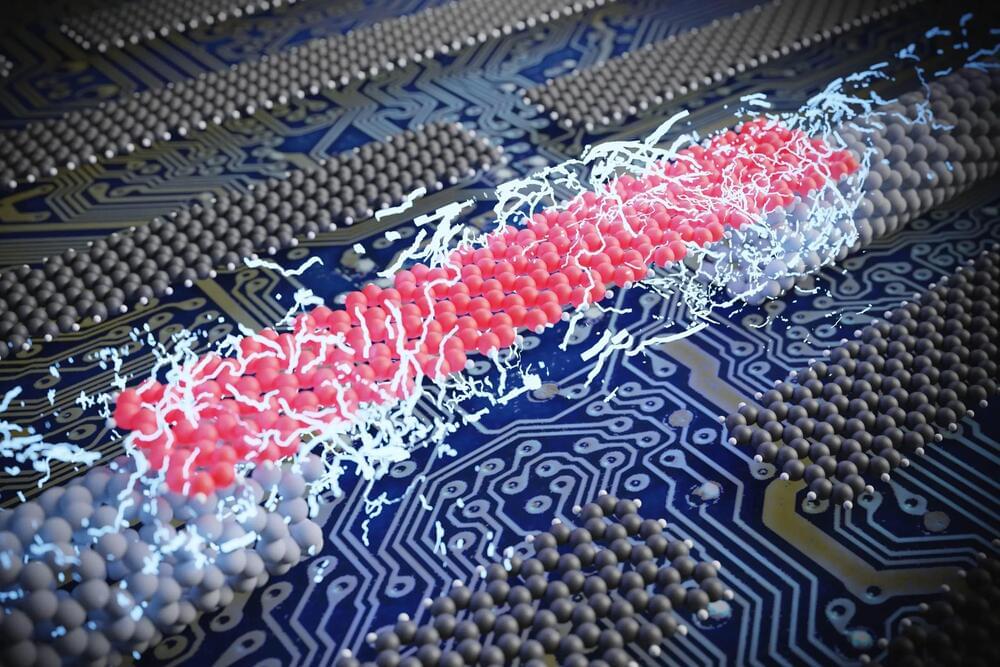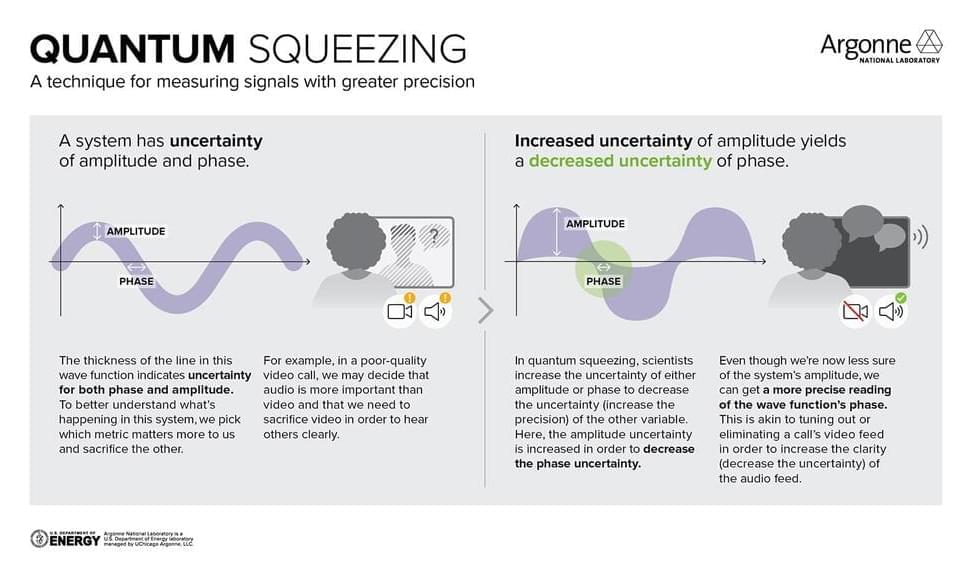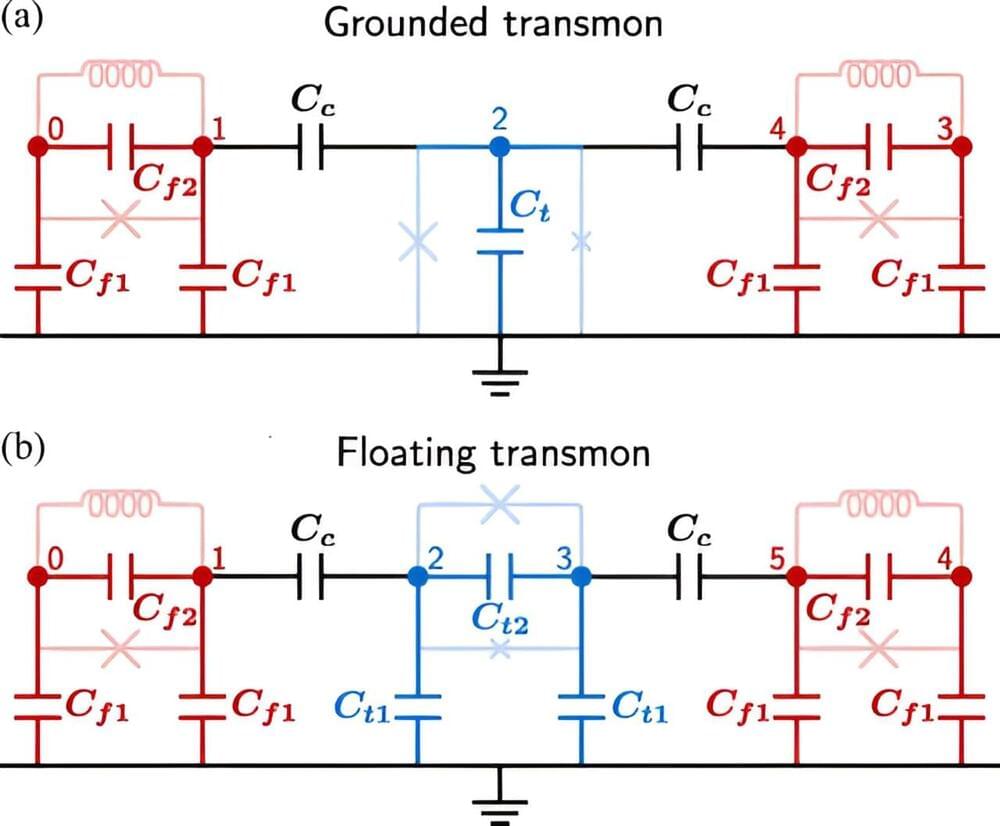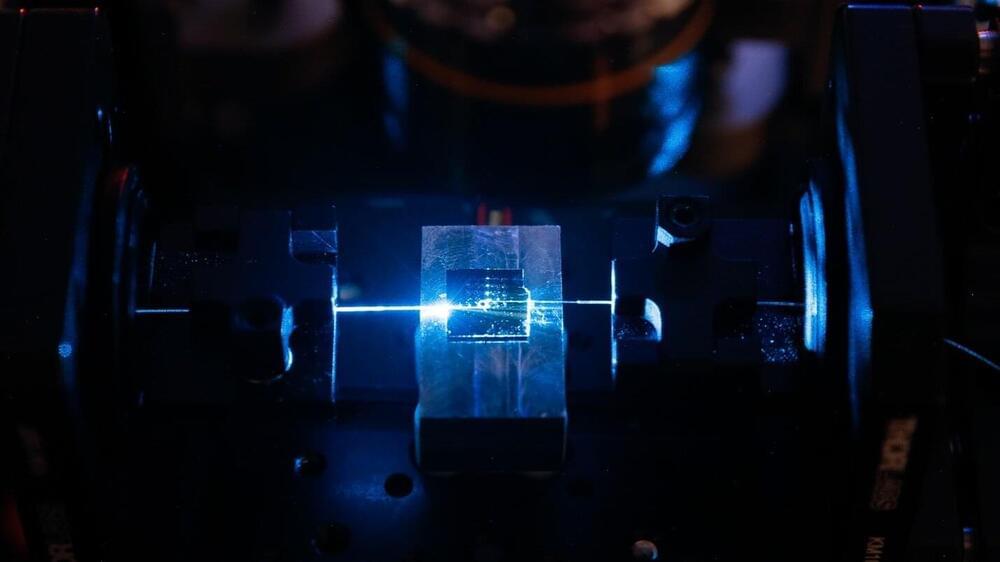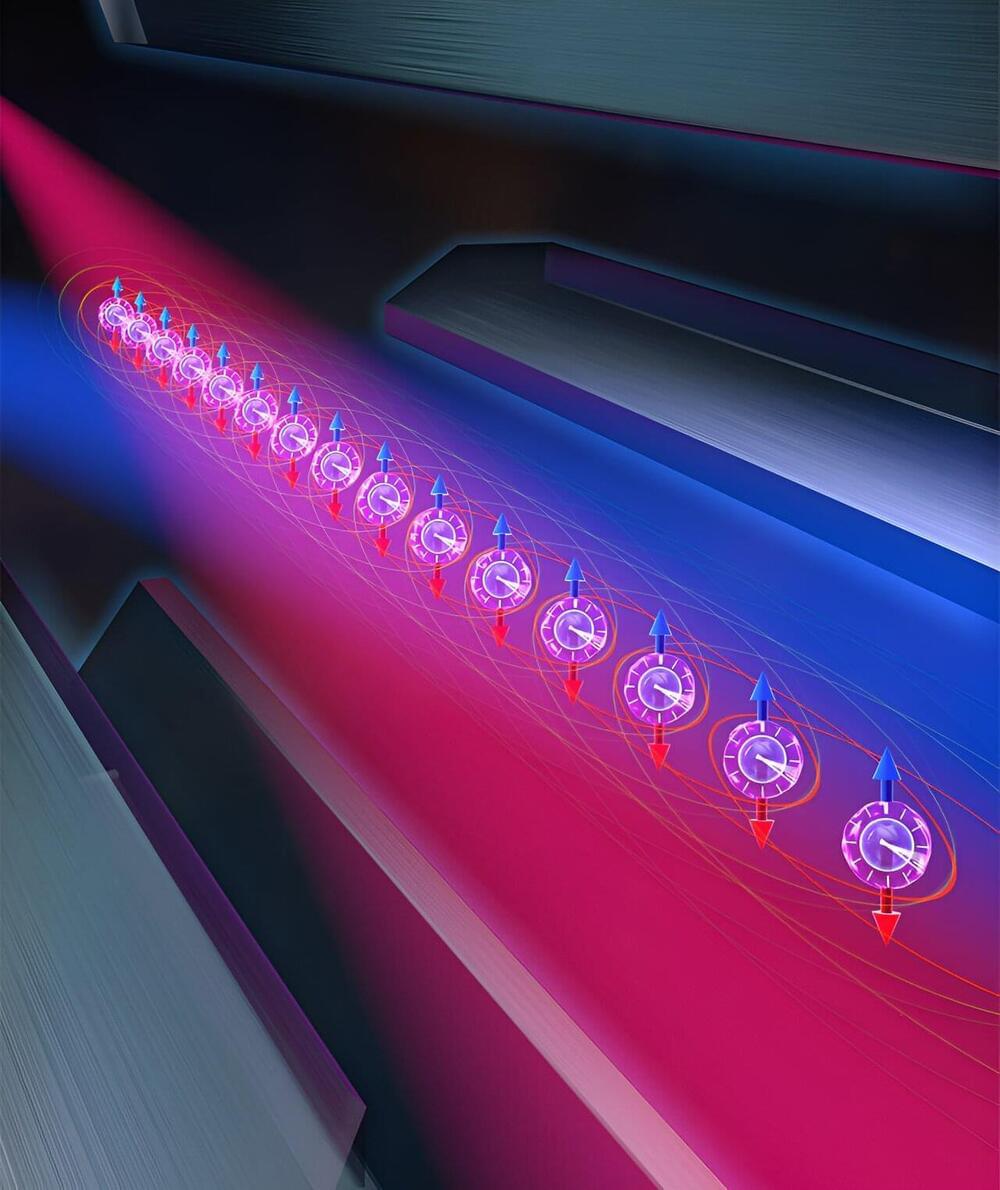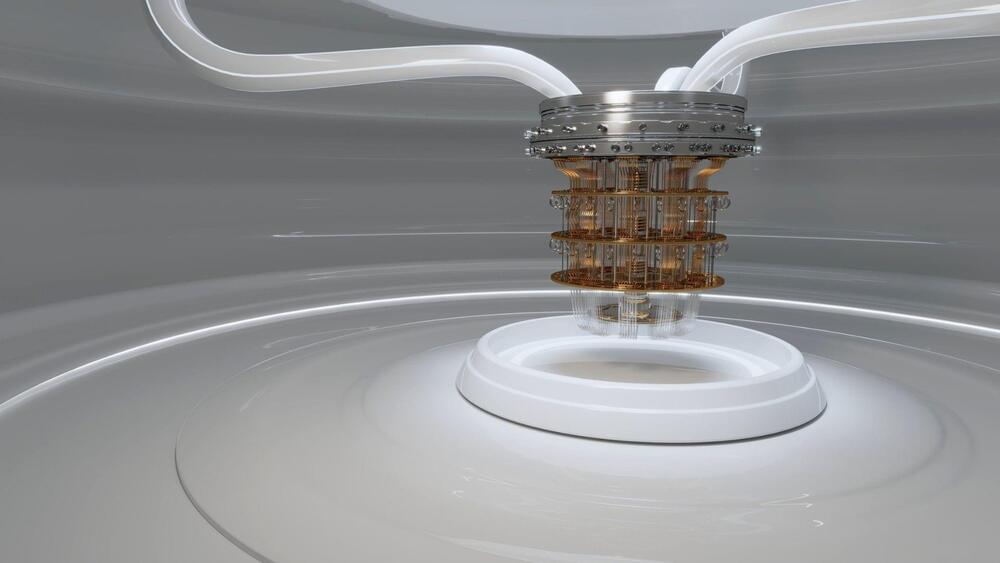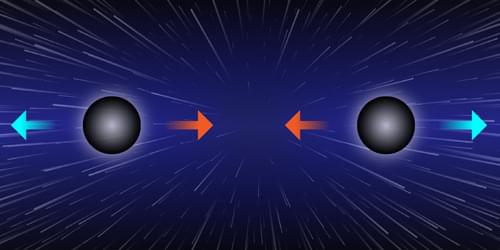Sep 28, 2023
UV Photonic Optical Resonator Chips Pave Way for Miniature Communications and Quantum Computing Devices
Posted by Dan Breeden in categories: computing, quantum physics
Advance lays the groundwork for miniature devices for spectroscopy, communications, and quantum computing. Researchers have created chip-based photonic resonators that operate in the ultraviolet (UV) and visible regions of the spectrum and exhibit a record low UV light loss. The new resonators lay the groundwork for increasing the size, complexity, and fidelity of UV photonic integrated circuit (PIC) design, which could enable new miniature chip-based devices for applications such as spectroscopic sensing, underwater communication, and quantum information processing.

